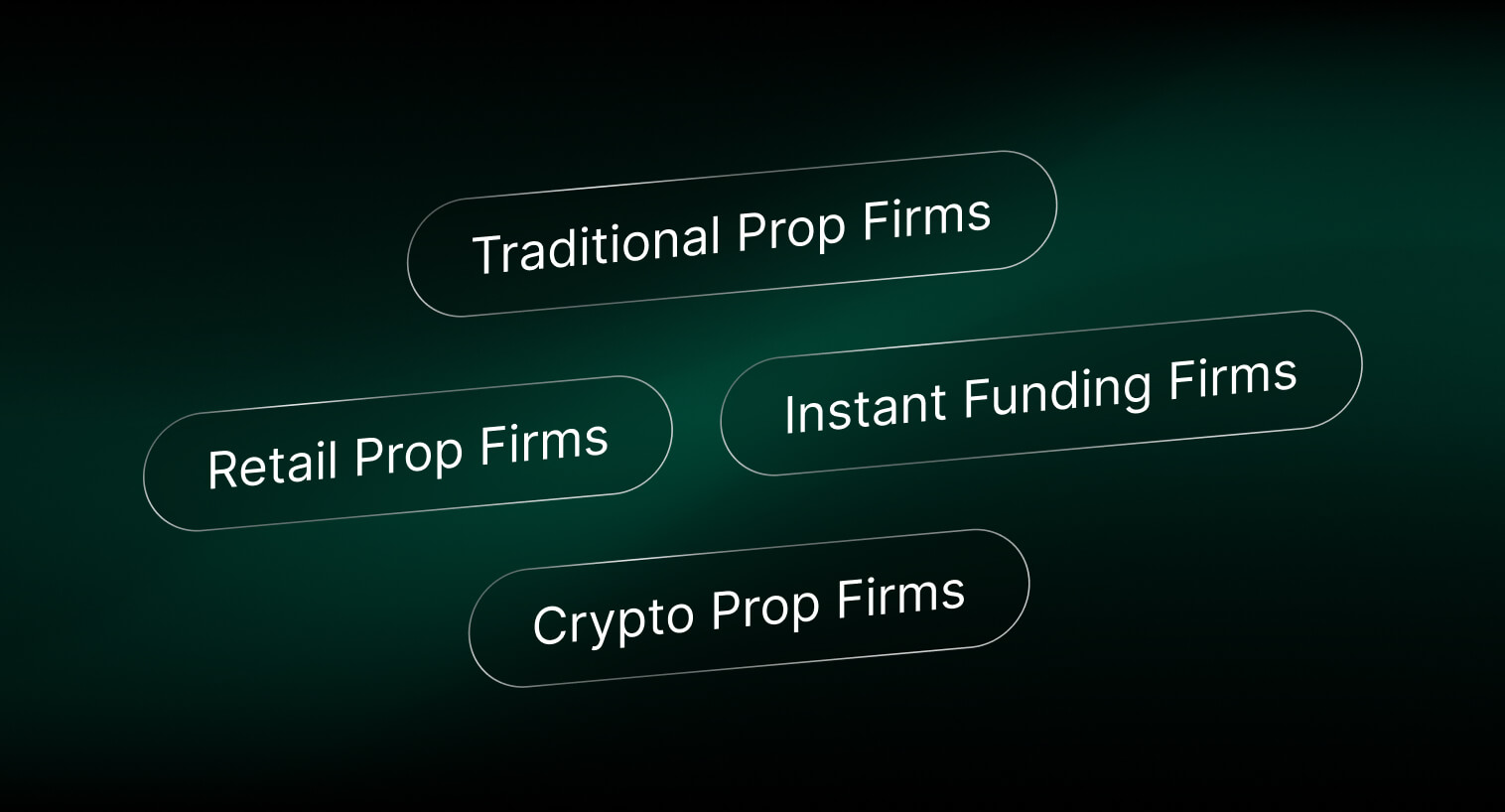Are Prop Firms Legit? Learn How to Avoid Scams with Prop Trading Firms


Proprietary trading firms, commonly known as prop firms, have become increasingly popular in trading, especially with the emergence of crypto prop trading firms, given the rise of the cryptocurrency market.
With the rise in popularity also comes questions about prop firms’ legitimacy. In this article, we will explore this industry in-depth to extract relevant insights from experts, traders, and other sources to come up with a broader understanding of how proprietary trading works and how to avoid fraud and scams.
While investment banks make money through commissions by investing or trading on their client’s behalf, prop firms engage directly in stocks, forex, crypto, and commodities trading to obtain financial gains. Hence, these firms do not chase commissions from their clients’ trading activities.
Prop firms partner with talented traders, offering them high-quality trading platforms and tools to trade on the firm’s behalf. The funded trader can leverage the firm’s financial capital to trade sizable positions to generate higher returns. In return for the borrowed capital and platforms, the trader shares a percentage of their profits.
To succeed as a funded trader, you must exhibit consistency in risk management, emotional discipline, and a deep understanding of the markets. Learning how to develop a strategy, including using backtesting and adhering to it, is also key to sustaining long-term performance.

Prop firms can be categorized mainly into four types depending on their operational models. These are:
Whether prop firms are legit depends on a few factors. Many proprietary firms operate within all the ethical guidelines and legal frameworks, providing a genuine service and good opportunities for skilled people. Legit prop firms are run by well-capitalized and reputable financial entities.
There are, however, some entities with very questionable practices. These entities often offer promises that sound too good to be true. It is, therefore, crucial to evaluate each firm individually and look for red flags such as unclear profit-sharing terms and overall lack of transparency on their rules and policies.
A legitimate prop firm typically exhibits the following set of characteristics:
The best prop trading firms will have a mix of the above-mentioned characteristics. Reputable firms like SabioTrade also tend to have an active social media presence and blogs where they employ specialists to showcase their financial authority and help traders look for consistent ways to protect their capital and maximize profits while trading with prop firms.
Prop firms make money even though most traders do not pass their evaluation test toward prop trading accounts. To discover the truth behind how these companies operate, you must study their core revenue streams and their entire operational structure. Thorough research reveals how these businesses are sustained in the long term:
Many prop firms are not regulated by relevant financial authorities, such as the U.S. Securities and Exchange Commission, because they don’t manage client investments directly. This lack of supervision means traders should be wary of firms with no public identity, poor customer support teams, or unverified social media accounts. You should avoid firms that exhibit these red flags.
Other reasons for skepticism towards prop firms include:
Many prop firms are not regulated, but that doesn’t mean they cannot operate a legitimate prop business. When choosing a prop firm, you will realize most of them position themselves as providers of capital and educational services, offering access to capital in exchange for proof of skill. Ensuring transparency and accountability is key for a legitimate proprietary trading firm.
Separating a legit prop firm from possible scams involves some of the key indicators below:
| Indicator | Legit Prop Firm | Fraudulent Prop Firm |
| Transparency | Legit prop firms provide clear rules, fee structure, and profit-sharing details. | Fraudulent prop firms have vague terms, hidden fees, and ambiguous profit-sharing policies. |
| Realistic Requirements | Achievable profit targets and reasonable risk parameters. | Unrealistic targets and overly restrictive rules. |
| Reputation | Positive testimonials and a solid record. | Numerous complaints and negative reviews online. |
| Website Quality | Professional design with explicit and comprehensive information. | Unprofessional design with a limited amount of information. |
| Customer Support | Responsive and knowledgeable. | Unresponsive or evasive. |
To help you make the best decisions when evaluating different types of prop firms in order to pick one to work with, we have prepared the following checklist for you to consider:
Verify the Firm’s Regulatory Status: Understand how it operates if it is not formally regulated.
To secure yourself when choosing a prop firm, consider these practices:
Proprietary trading is a high-risk, high-reward activity that presents both opportunities and risks. The most known prop firms in the market operate legitimate businesses and provide valuable experiences for highly skilled traders. It is, however, always a good idea to conduct your own research to avoid fraudulent schemes. Prop trading can be a good choice for long-term success when you seek to understand the firm’s business model, verify its reputation among the community, and implement smart risk management strategies.
1. Are prop firms a scam?
No! Not all prop firms are scams. Many prop firms in 2025 operate legitimately. It is, however, essential to exercise due diligence before committing to a prop firm.
2. Do prop firms make money even if traders fail?
Yes, many firms generate revenue through assessment fees and strict trading rules that could potentially limit a trader’s trading activity and success.
3. Are prop firms regulated?
Although most prop firms are not directly regulated, they can still operate as legal businesses.
4. How can I find a reliable prop firm?
You should always look for transparency, check whether the firm has realistic trading requirements, positive reviews, and a responsive customer support structure.
5. Can I trade cryptocurrencies with a prop firm?
Yes! Given the rise in the crypto market in recent years, many prop firms started offering services and products related to crypto trading activities.
6. What is the difference between a prop firm and a broker?
A prop firm provides capital for traders to trade, sharing profits based on performance. On the other hand, a broker acts as an intermediary player for trading with your own capital.
7. Can I lose my own money trading with a prop firm?
Generally, no. You trade with the firm’s capital. However, the assessment fees and subscription costs you pay upfront are non-refundable. This is why it’s crucial to research carefully before choosing a prop firm.
8. How important is the trading platform offered by a prop firm?
Very important! A reputable prop firm should provide access to stable, fast, and secure trading platforms. Slow and unreliable platforms can severely impact your profitability.
9. Do prop firms offer educational resources?
Most prop firms, especially the most well-known ones, offer training materials, webinars, and mentorship programs to help funded traders trade more effectively
and pass evaluations and challenges.
10. Can I work with multiple prop firms at once?
Yes, you can! It is recommended to do so as a way to diminish the impact of something going bad with an unreliable firm.